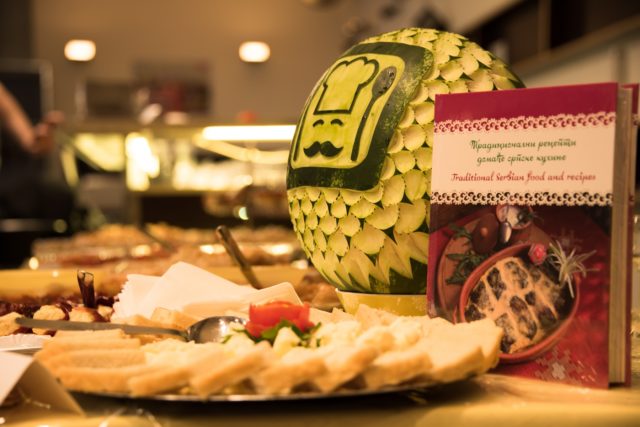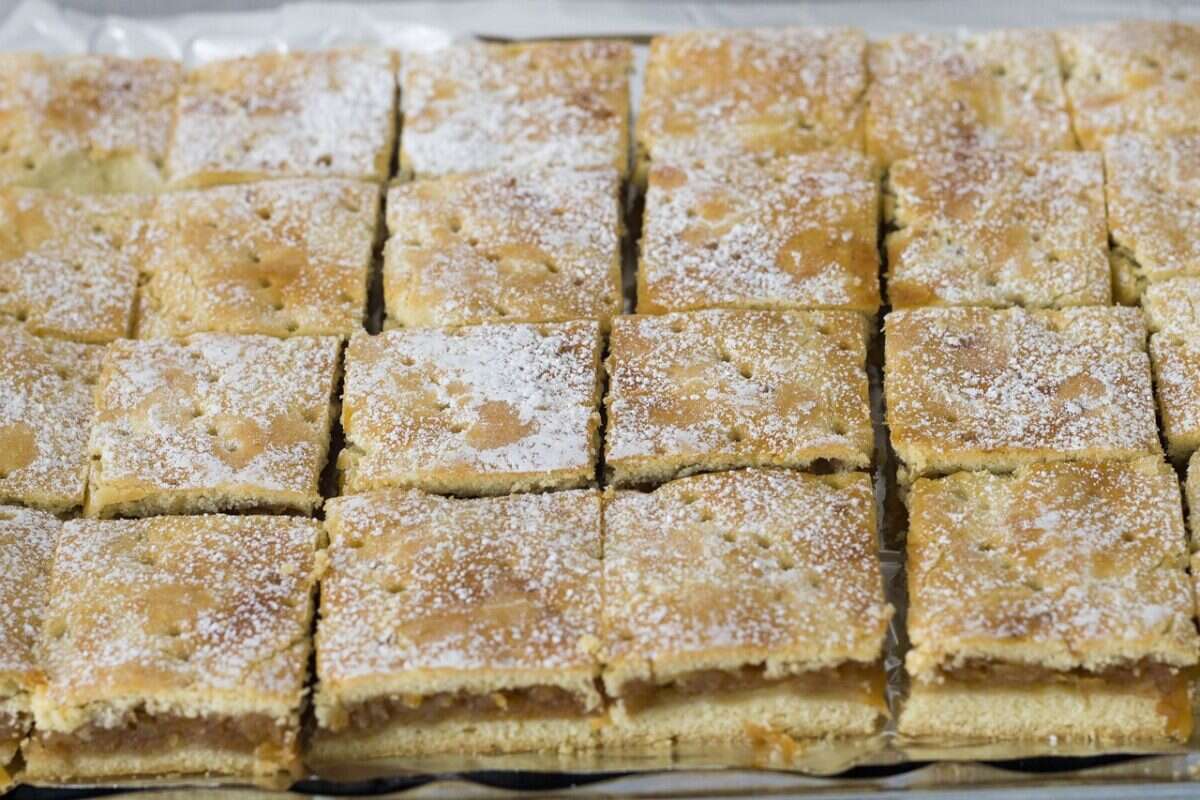Vienna, 09.05.2019. - Exactly one year after the book was published Traditional recipes of Serbian cuisine, the promotion was held in a packed hall of the EGA Zentrum in Vienna, organized by the Serbian Cultural Forum and under the patronage and assistance of H.E. Ambassador of Serbia in Austria Mr. Nebojša Rodić and the Embassy of Serbia in Vienna.
Host, president of the Serbian Cultural Forum, Mr. Dragan Miskovic, in his opening remarks, pointed out that the mission of the Serbian Cultural Forum is precisely the organization of such events, related to culture and tradition.

It's a promotion opened by H.E. Ambassador Mr. Nebojsa Rodić, who, among other things, said: "Our cuisine is special, perhaps because we recognize in it the influences of many other cuisines." But we express our authenticity precisely by preparing that food in a special way. I acquire knowledge, I belong to those who read very zealously, everything that comes before my eyes. So I read this book, which I have to say, in my opinion, is, in addition to its content, a masterpiece as it is technically made. I have not had the opportunity to see such a book. And what is written, as recipes, also represents art. And art should not be discussed. Either you accept it, or you don't. In any case, this is a valuable book. An incredible effort to do all that. The intention to present it in a foreign language, and not only in Serbian, was exceptionally implemented. I enjoyed holding this book in my hand, I enjoyed reading it... It was a pleasure to talk with the Ilić family. It was a pleasure to agree on the preparation of tonight's meeting. Let's enjoy something, which is only a fraction, which is written in the book, and which has been prepared for us tonight."

In the continuation of the event, the attendees were told about the book professor Dr. Slađana Šobajić, full professor at the Faculty of Pharmacy in Belgrade at the Department of Bromatology, graduate ethnologist Branka Babić, curator-ethnologist of the National Museum in Zrenjanin and author of the book, Miodrag Ilić.

Professor Dr. Slađana Šobajić stated that food should always be medicine and medicine should be food. This rule was especially expressed in traditional domestic cuisine in the olden times. She pointed out that such books always remind us not to forget the most important thing: that health comes through the mouth.
Branka Babić, curator-ethnologist emphasized the importance of such projects and books in the preservation of intangible cultural heritage. At the end of the presentation, she invited the author of the book to register some of the mentioned ancient dishes through the Center for Intangible Cultural Heritage in order to be officially included in the National Register of Intangible Cultural Heritage (List of Elements of the Intangible Cultural Heritage of the Republic of Serbia).
The author of the book is Miodrag Ilić spoke about how the book was created, about the importance of such projects in preserving tradition. He placed a special emphasis on the multiculturalism of these areas, as well as the fact that in the old days, many similar dishes could be found in all parts of Serbia and that no one - an individual or a region - claims the copyright to a skill in making a dish or the recipe itself, but is all part of the unique food culture and the overall intangible cultural heritage of the Republic of Serbia.

The Tourist Organization of Serbia provided all visitors to this event with appropriate gifts. Pavle Djukic, on behalf of TOS, informed everyone about the plans and actions that TOS will have this year and in the coming period.
After the official part of the promotion, all those present could try many old-fashioned, traditional dishes, which were prepared according to recipes from the book Traditional recipes of Serbian home cooking. The master of the culinary craft this time was the master chef and carving master Dejan Ilic, who received applause from all present for his creations.
There were specialties on the menu: strudel with poppy seeds, strudel with walnuts, salčići, lazy pie with apples, vesina cake, pounded salad (roasted pepper and tomato), pie with potato, pie with cabbage, stuffed dry pie with cheese, meatballs ( uštipak from Leskovac), greens salad, cream, ajvar, presna pogača, princess donuts...


In addition to all those deacons, Trilogija winery, the wine pearl of Šumadija, and the owner and head sommelier, made sure that the guests did not remain thirsty. Dragan Mijailović gave advice on traditional food and wine pairings.
Complete photo gallery: https://www.facebook.com/pg/ReceptiiKuvar/photos/?tab=album&album_id=1034993516701817
Briefly about the book Traditional recipes of domestic Serbian cuisine
The book "Traditional recipes of domestic Serbian cuisine" is a treasure trove of data that tells not only about the composition of the dishes, but also about a way of life that is slowly but irreversibly disappearing. About the way of life when cooking was done for the family, when there was enough time for a long meal preparation, when the whole family sat at the table, and when frozen or reheated meals were unknown. Flipping through the book and reading the recipes, you can almost smell the aroma of these freshly prepared and delicious dishes, which also represent an important part of the intangible cultural heritage of a nation.
Tradition and customs play an important role in the cultural identification of each nation. Regardless of whether it is records or oral traditions, information about the way of life in past times allows to protect the authenticity and identity of communities closely linked by the same geographical origin, to preserve traditional knowledge and skills that may no longer be necessary but are part of historical heritage.
All details about the book at the link: http://tradicionalnirecepti.net/rs/







